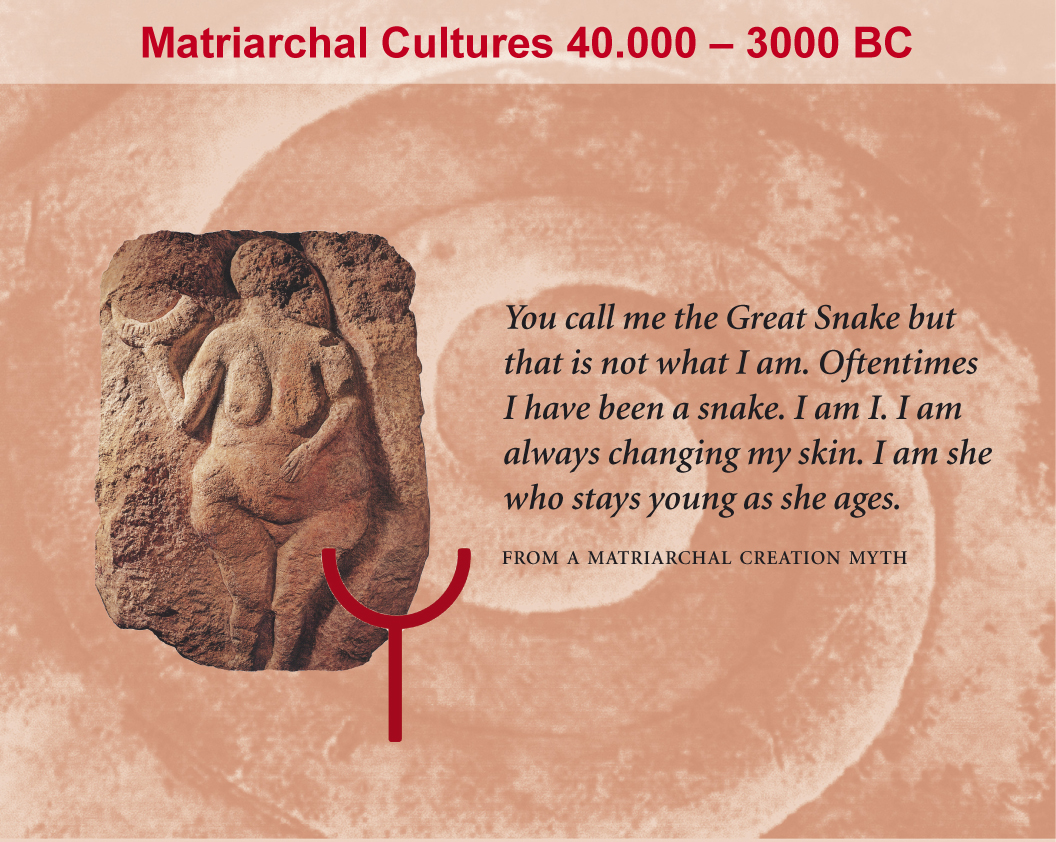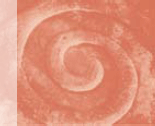 |
 |
 |
| |
|
|
| |
Seven TimeSpaces, or rooms, are linked in a spiral
movement. In this movement past, present, and future circulate. In the spiral
of time the genesis, historical impact, and changes of a matriarchal pattern
become visible. In each of the TimeSpaces particular historical and symbolical
aspects of the pattern emerge. For each TimeSpace, and in each room, this
historical occurrence is illustrated through the leifmotif of a woman's
quotation, a specially designed pictogram, and a guiding image. |
|
|

In the beginning was the birth of the human being:
The first TimeSpace and room illustrate the genesis of the matriarchal pattern
during early history, serving as living foundation for all subsequent
TimeSpaces in human history.
The raised
arms of the stylized woman's figure symbolize birth, blessing, joy and
freedom-and thus, in the sense of Hannah Arendt, the chance for humans to begin
anew.
The woman of Laussel embodies this
universal worldview. Holding a moonhorn, she points to belly and vulva. Due to
its markings the moonhorn is considered the first calendar of humankind. The
limestone relief, 46 cm high, bears witness of women's knowledge about the
body, natural laws and their social significance. It was created in Laussel
(Dordogne), in modern-day France, around 21000 BC. Today it is in the
Musée des Antiquités Nationales St. Germain-en-Laye. |
|
 |
|
See Kuhn, Annette:
Historia. Frauengeschichte in der Spirale der Zeit. [Women's history in the
spiral of time] Opladen & Farmington Hills 2010 (= Schriften aus dem Haus
der FrauenGeschichte; Bd. 4 ), S. 21-56 [Publications from the House of Women's
History, Vol. 4, pp. 21-56]
See Spirale der Zeit. Frauengeschichte
sichtbar machen. Hrsg. v. Annette Kuhn, Marianne Hochgeschurz, Monika
Hinterberger. Heft 1: Matriarchale Kulturen. [Spiral of time. Making women's
history visible. Edited by Annette Kuhn, Marianne Hochgeschurz, Monika
Hinterberger. Issue 1: Matriarchal Cultures.] Leverkusen und Michigan (USA)
2007
See Ursprünge - Matri Arche, POLITEIA - Historischer
Monatskalender 2006, hrsg. v. Marianne Hochgeschurz [Origins - Matri Arche,
POLITEIA - Historical Calendar 2006, edited by Marianne Hochgeschurz] |
|
 |
|
For additional publications go
 here here |
|
|




